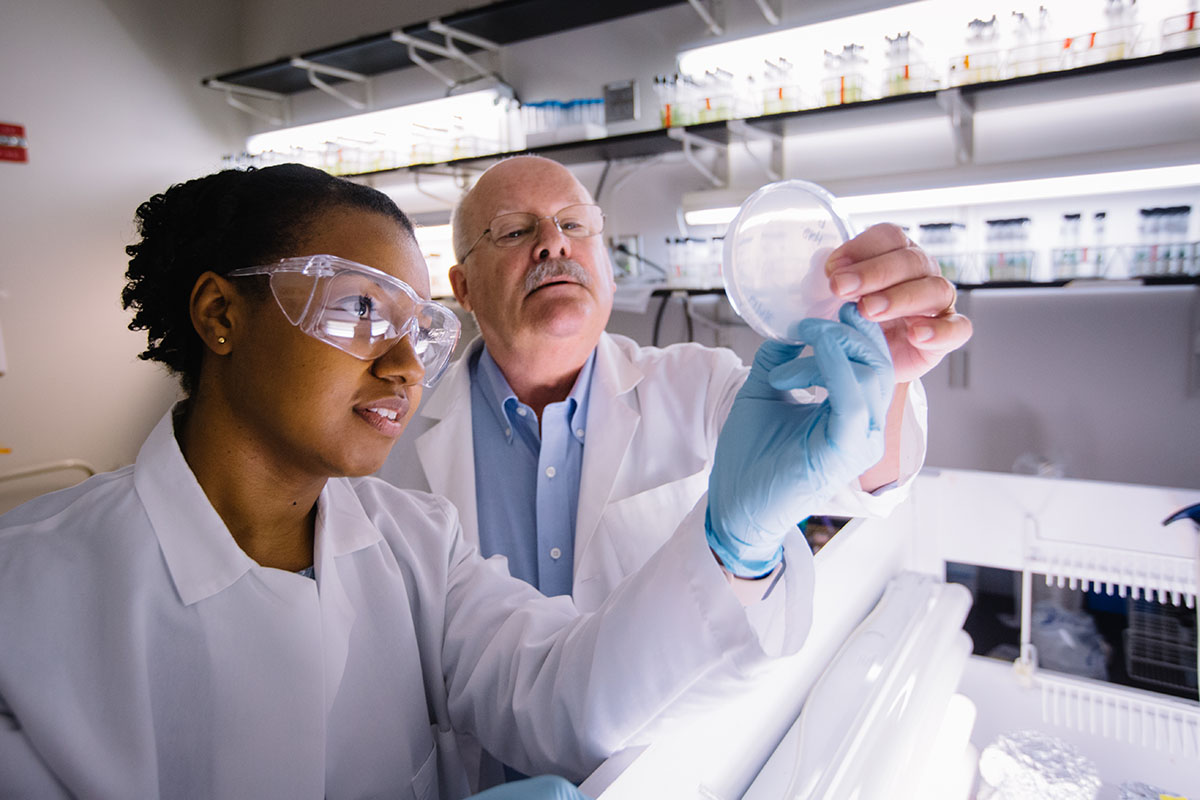The Power of Endowments
Fueling Emory’s Mission and Why the Endowment Tax Matters
By Josh Newton, Senior Vice President for Advancement and Alumni Engagement, and Cameron Taylor, Vice President for Government and Community Affairs, Emory University
For both of us, the work we do at Emory University is personal. We’ve dedicated our careers to Emory because every day we see why it matters—whether it's a first-generation student tearing up when she learns her scholarship will cover all four years, a patient walking out of a clinical trial with new hope, or a researcher making a breakthrough that could change treatment for Alzheimer's disease.
These moments happen constantly because of the generosity of others, the power of higher education and academic medicine, and the strength of our shared commitment to serve humanity.
This is why we advocate for the endowment. One of Emory’s most essential engines, the endowment quietly powers progress that reaches far beyond our campuses and health care facilities.
Emory's endowment is not a single fund. Emory has a pool of over 2,400 individual endowed funds—each established with a particular purpose. Most of these endowed funds were established by generous donors who believe in providing financial resources that will support Emory’s academic and health care missions in perpetuity, including funds for student scholarships, faculty professorships, research initiatives, clinical care, and other programs.
We want more people to understand why the endowment matters, how it works, and why an endowment tax carries real consequences for students, patients, and society at large. The goal is to offer a clear, nonpartisan explanation of the issue.
Why the Endowment Matters

An endowment is not a strategy for building institutional wealth. Instead, endowment funding drives our mission, creates stability, and enables us to serve others. It allows us to remain strong and responsive, no matter the economic climate, and to serve students, patients, faculty members, and communities now and for generations to come.
At Emory, our endowment directly fuels three areas of impact: student access and support, research and discovery, and health care and community well-being.
Supporting Students with Purpose
For many students, an Emory education would be out of reach without financial aid. Endowment-funded scholarships and fellowships open the door for students from every background to attend Emory and thrive—students who bring many different experiences, perspectives, and talents to our community.
These funds do more than just make college affordable. They allow students to focus on learning rather than working to make ends meet. They create time to pursue internships, research, and service opportunities that shape personal and professional growth. For graduate students, endowed fellowships often make rigorous, full-time study possible.
Beyond tuition, endowment dollars support advising programs, mentoring initiatives, emergency aid, and other successful efforts that help ensure all students, regardless of circumstance, can access the full Emory experience and graduate prepared to lead, innovate, discover, and serve.
Driving Research Forward

Research is the heart of Emory’s mission, and the endowment is an essential engine. Endowment funding for professorships and research allows faculty members and discovery teams to take intellectual risks, explore promising ideas, and pursue investigations absent reliance on traditional grants.
This kind of work leads to breakthroughs across many disciplines, including vaccine development, creative writing, cancer treatment, and artificial intelligence. It helps Emory attract and retain world-class scholars and scientists—leaders in their fields who, in turn, mentor and inspire students to push boundaries, ask the next big questions, and find the answers.
In an increasingly competitive and fast-changing funding landscape, endowment support gives researchers both flexibility and stability to innovate, collaborate across disciplines, and stay focused on work that advances knowledge and improves people’s lives.
Advancing Health Care and Community Well-Being

Roughly 40% of Emory’s endowment is dedicated to supporting health care and the health sciences. These funds advance the mission of Emory School of Medicine, Rollins School of Public Health, Nell Hodgson Woodruff School of Nursing, and Emory Healthcare, the state’s premier academic medical center and one of the most comprehensive health care systems in the Southeast.
The endowment allows Emory to deliver world-class health care, expand access to clinical trials, train a new generation of physicians and nurses, and operate a growing network of community hospitals and clinics that reach far beyond our academic campus. In short, this foundational funding saves lives every day.
Whether funding scholarships for nursing students, supporting public health research in rural Georgia, or enabling our faculty physicians to lead clinical innovation, the endowment ensures Emory can continue to meet the region’s needs while setting a national standard for care, discovery, and excellence.
How Endowments Work
Despite these benefits, endowments are often misunderstood. One common misconception is that a university’s endowment is a single pot of money that can be freely drawn upon whenever needed. In reality, Emory’s endowment is composed of more than 2,400 individual funds, most created by donors and legally designated for specific purposes—scholarships, professorships, research, student support, increased health care access, community partnerships, and more.
The university invests the principal of each fund and spends a small portion of the earnings each year, typically around 5%, to support the donors’ intent. The rest remains invested to ensure the gift can support Emory’s mission in perpetuity. This disciplined, long-term strategy allows the university to deliver consistent impact while safeguarding the resources entrusted to us.
A Tax with Real Consequences
In 2017, Congress imposed an excise tax on the net investment income of a small group of private universities, often referred to as the “endowment tax.” Emory currently pays a 1.4% tax on investment income, which equated to approximately $9 million last year.
Under the new budget bill that recently passed in Congress, Emory’s net investment income excise tax is projected to increase. If we fall in the 4% bracket as we anticipate, Emory’s annual tax obligation would jump three-fold.
The tax would reduce the dollars available for scholarships, research, and patient care. It would mean fewer resources to support students who depend on financial aid. Fewer investments in medical discovery. Less flexibility to provide the highest-quality health care in every corner of the state. This isn’t about dollars for their own sake. It’s about what those dollars actually do. At Emory, what they do is substantial and life-changing.
Our Commitment and a Shared Responsibility
Working at Emory, we’ve seen lives transformed, families uplifted, and communities strengthened. And we’ve seen how endowments, when carefully stewarded and transparently managed, can transform generosity into enduring, tangible results.
Endowments are not idle reserves. They are purpose-driven investments in students, teachers, research teams, patients, health care providers, and community members. When a nonprofit private university is taxed, the people who suffer are those we serve.
Behind every endowed dollar is a student gaining access to opportunity, a researcher pushing the boundaries of knowledge, a patient receiving care unavailable elsewhere—all worth protecting.